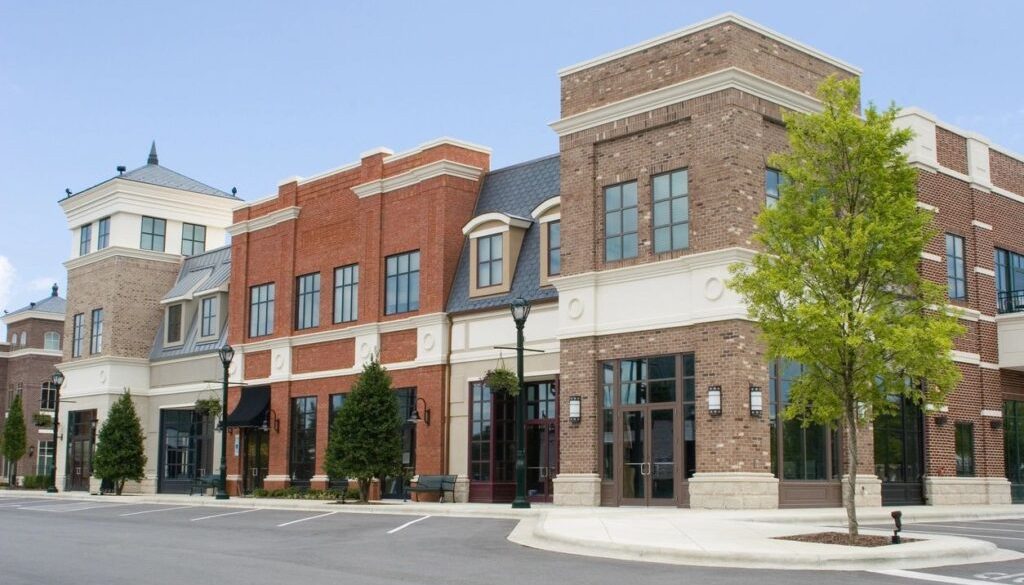The Pros and Cons of Leasing Versus Owning Commercial Property
Leasing or owning commercial property? Explore the pros and cons to make an informed decision for your business investment.
The Pros and Cons of Leasing Versus Owning Commercial Property
Understanding whether to lease or own commercial property is crucial for business owners and investors. This blog post delves into the benefits and drawbacks of both options, helping you evaluate which approach aligns best with your financial goals and operational needs. From flexibility and cash flow to long-term investments and asset ownership, we will cover key aspects to aid your decision-making process.
Introduction
As a business owner or investor, the decision to lease or own commercial property can significantly impact your financial health and operational flexibility. The commercial real estate market is constantly evolving, influenced by economic trends, market demand, and business needs. While both leasing and owning have their advantages and disadvantages, understanding these can guide you in making a well-informed choice that suits your long-term strategy. In this article, we will discuss the pros and cons of leasing versus owning commercial property, analyzing key factors such as cost implications, control over the property, and the potential for asset appreciation.
Advantages of Leasing Commercial Property
- Lower Initial Investment: Leasing commercial property typically requires less upfront capital compared to purchasing. This is particularly beneficial for startups or businesses looking to conserve cash for operational expenditures instead of tying up funds in real estate.
- Flexibility and Mobility: Leasing offers businesses greater flexibility to adapt to changing market conditions. If your business needs evolve or you outgrow your space, it’s easier to relocate after the lease term expires than to sell a property you own.
- Maintenance and Repair Responsibilities: Often, leasing contracts specify that the landlord is responsible for maintenance and repair costs, which can significantly reduce your financial burden. This allows you to focus on running your business rather than dealing with property management.
- Access to Prime Locations: Leasing enables businesses to occupy premium locations that might be financially out of reach if purchasing. Being situated in a desirable area can bolster your brand image and attract more customers.
- Tax Benefits: Lease payments can be fully deductible as a business expense, which may reduce your overall taxable income. This can lead to significant savings, particularly for small to medium-sized enterprises.
Disadvantages of Leasing Commercial Property
- No Equity Build-Up: Unlike owning, leasing means you are not building equity in a property. At the end of the lease term, you may have to start over with another lease, and the money spent on rent does not contribute to asset ownership.
- Limited Control Over Property: As a lessee, you may face restrictions on how you can use or modify the property. This could limit your ability to customize the space to suit your specific business needs.
- Potential for Rent Increases: Lease agreements may include clauses for annual rent increases, which can impact your long-term financial planning. If the market appreciates, you might find yourself paying significantly more when it’s time to renew your lease.
- Uncertainty at Lease End: There’s always the chance that the landlord may not renew your lease, or they may choose to sell the property to a new owner. This uncertainty can disrupt your business operations and require unexpected relocation.
Advantages of Owning Commercial Property
- Asset Appreciation: Owning commercial property can be a significant investment as real estate generally appreciates over time. This can lead to capital gains when you decide to sell.
- Control Over Property: Ownership grants you full control over the property, allowing you to make modifications, upgrades, and expansions without needing approval from a landlord.
- Income Generation: If you own a property larger than your operational needs, you can lease out additional space to other businesses. This generates supplementary income that can offset your mortgage or help with cash flow.
- Tax Advantages: Property owners may benefit from numerous tax deductions, including mortgage interest, depreciation, and property tax deductions, which can further enhance financial sustainability.
- Stability and Security: Owning a property provides more stability and security for your business. You won’t have to worry about lease renewals or potential rent increases, allowing you to focus on growth.
Disadvantages of Owning Commercial Property
- Higher Initial Costs: Purchasing commercial property typically requires a significant upfront investment for down payments, closing costs, and related expenses. This can strain your cash flow, particularly for new or small businesses.
- Ongoing Maintenance Costs: As the property owner, you are responsible for all maintenance and repairs. These ongoing costs can accumulate and may become a burden, especially for older properties.
- Market Risk: Real estate markets can be volatile, and property values can fluctuate based on various economic factors. If the market declines, your investment may lose value, impacting your overall financial health.
- Reduced Flexibility: Owning a property may limit your ability to adapt quickly to changes in your business model or market conditions. Selling a property can also be a lengthy process that may not align with urgent business needs.
- Long-Term Commitment: Committing to owning a property means long-term financial responsibility. If your business does not perform as anticipated, this obligation can pose significant risks.
Comparing Long-Term Financial Implications
When evaluating leasing versus owning, it’s important to consider the long-term financial implications. Leasing generally allows for easier cash flow management in the short term, as you are not tied to a mortgage. However, over time, the costs of leasing can exceed those of owning, particularly if you stay in a space for an extended period.
In contrast, while ownership may require a substantial initial investment, the ability to build equity and benefit from potential appreciation can make it a more financially sound option in the long run. Additionally, property owners can leverage their real estate as collateral for future financing, creating opportunities for growth.
A detailed analysis of your financial situation, including projected cash flows, market conditions, and business growth plans, will provide clarity on which option may be more advantageous for your specific circumstances.
Expert Opinions on Leasing vs. Owning
Industry experts often advocate for a strategic approach when deciding between leasing and owning commercial property. According to real estate analysts, the choice should align with your business goals, financial health, and market conditions.
Real estate consultant Jane Doe states, “For startups and businesses with fluctuating needs, leasing is generally the more prudent choice. It provides flexibility without the burden of ownership. However, established businesses looking for stability and long-term investment should consider purchasing.”
Additionally, financial advisors suggest weighing the opportunity costs associated with each option. Owning a property ties up capital that could be invested in other areas of the business or used for expansion. On the other hand, leasing allows for the preservation of capital but may result in lost opportunities for asset appreciation.
Practical Applications and Best Practices
When navigating the decision between leasing and owning commercial property, consider the following best practices:
- Conduct a Thorough Financial Analysis: Evaluate your business’s financial position and future projections to determine which option is financially feasible.
- Consider Business Growth Plans: If you anticipate rapid growth or changes in your business model, leasing may offer the flexibility you need.
- Evaluate Location and Market Trends: Analyze current market conditions and future forecasts. Understanding the local market dynamics can inform your decision.
- Seek Professional Guidance: Consulting with commercial real estate professionals can provide valuable insights and help you navigate the complexities of leasing and ownership.
- Review Lease or Purchase Agreements Carefully: If opting to lease, ensure you understand all terms and conditions. In the case of purchasing, be aware of all financial implications, including taxes and maintenance costs.
Future Trends in Commercial Leasing and Ownership
The commercial real estate landscape is continuously evolving, influenced by technological advancements, changing work environments, and shifting consumer preferences. Trends such as remote work, e-commerce growth, and sustainability are shaping decisions around leasing versus owning.
Businesses are increasingly seeking flexible office spaces and co-working environments, making leasing a more attractive option for many. However, with the rise of remote work, companies are also reassessing their real estate needs, which may lead to increased interest in ownership as a means of securing long-term assets.
Additionally, sustainability concerns are prompting businesses to invest in energy-efficient properties, whether leasing or purchasing. Properties that meet these criteria not only contribute to environmental goals but can also reduce operational costs in the long run.
Conclusion
Choosing between leasing and owning commercial property is a significant decision that requires careful consideration of various factors. Each option has its pros and cons that can align differently with individual business goals and financial situations.
To summarize, leasing offers flexibility and lower initial costs but lacks equity building, while owning provides asset control and potential appreciation but demands a higher initial investment. Understanding the implications of each choice, seeking expert advice, and considering future business needs will empower you to make an informed decision.
If you’re ready to explore your options further, whether leasing or purchasing commercial property, contact us today to learn about our listings and services tailored to meet your business needs.



